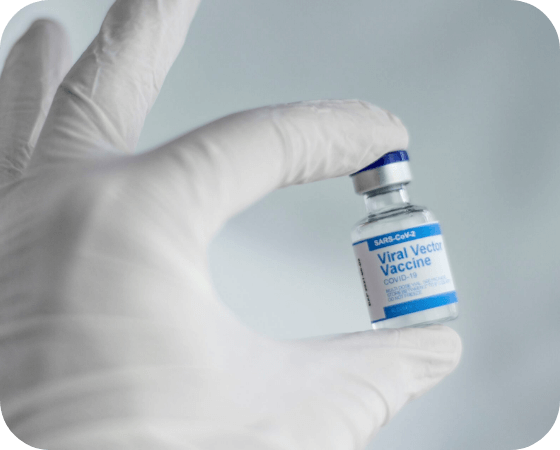It took the Food and Drug Administration (FDA) just three weeks to issue an emergency use authorization (EUA) for Pfizer’s COVID-19 vaccine in December 2020 when Pfizer submitted the request. In contrast, it’s been over two months since Pfizer initiated a “rolling submission” of its biologics license application (BLA) for its vaccine on May 7, and FDA has yet to comment on its timeline for approval. Amid growing calls for FDA to fully approve Pfizer’s vaccine, what’s making the review process take so long?
Why the Push for Full Approval?
Many people believe full approval of Pfizer’s COVID-19 vaccine will help get more shots into arms, which is seen as vital to protecting Americans from the rapidly spreading Delta variant. According to data from the Centers for Disease Control and Prevention posted on July 6, the Delta variant makes up 51% of new COVID-19 cases in the US. Additionally, studies show the Delta variant is at least 40% more transmissible than the Alpha variant, which was previously the country’s dominant variant. The surge in the Delta strain comes as many Americans remain vulnerable to COVID-19, as only 67% of Americans have received at least one COVID-19 shot, and the pace of vaccinations has dropped off considerably in recent weeks.
Full approval of the COVID-19 vaccine is one way public health experts believe could convince more Americans to roll up their sleeves, which addresses vaccine hesitancy, a sentiment echoed by several major elected officials. In June, President Joe Biden said going from “temporary approval to full approval” would “increase the number of people” willing to get vaccinated. Similarly, Arkansas Governor Asa Hutchinson, whose state has some of the nation’s lowest vaccination rates, remarked in June that full approval is needed to combat vaccine hesitancy. According to a Kaiser Family Foundation poll from May 2021, 32% of unvaccinated adults said full approval of one of the currently authorized vaccines would make them more likely to get vaccinated.
Furthermore, fully approving the vaccine will allow for more businesses and organizations to mandate the COVID-19 vaccine, which could help increase vaccination rates. While several hospitals and health systems such as Houston Methodist and Trinity Health have mandated the vaccine for their employees, some health systems like Beth Israel Leahy Health in Boston are holding off until a vaccine is fully FDA-approved. Even though lawsuits against vaccine mandates have so far held up in court, many employers and organizations seem to be holding off on mandating employees to get the vaccine out of fear of litigation. Even the US Army has communicated to servicemembers that vaccination won’t be mandated until “full FDA licensure.”
What’s the Hold Up?
The reason for FDA’s longer process for fully-approving Pfizer’s COVID-19 vaccine is due to the fact that the business of issuing a BLA is more intensive than an EUA. For an EUA to be issued, companies need to provide the FDA data that demonstrates efficacy and safety from a Phase 3 trial with a median follow-up period of at least two months. In contrast, a BLA requires FDA to look through at least six months of clinical trial data as well as a close examination of the company’s manufacturing process, both of which take additional time. Dr. Paul Offitt, a member of FDA’s Vaccines and Related Biological Products Advisory Committee, commented in December 2020 that Merck’s BLA submission for its 70,000-person rotavirus vaccine trial contained enough pages to exceed the height of the Sears Tower, a 1,450-foot skyscraper in Chicago currently known as the Willis Tower.
There are benefits for drug manufacturers in getting their products fully approved. According to former FDA Commissioner Dr. Robert Califf, a BLA would allow Pfizer to being marketing its vaccine directly to consumers. Additionally, full approval would open the door to Pfizer increasing the price of its vaccine post-pandemic, potentially generally billions of dollars for the company.
When Will the Vaccine Be Fully Approved?
Unfortunately, FDA has yet to shed any light on its timeline for fully approving the Pfizer vaccine. In late June, an FDA spokesperson told The Hill that the agency “cannot comment on individual applications before it.” More recently, the FDA told Army Times on July 2 that timelines for approval “may vary depending on a number of factors.”
While fully approving a vaccine normally takes between 8-12 months, there is reason to believe Pfizer will receive a decision from the FDA soon. Former FDA scientist Jesse Goodman said in June that the FDA might not complete its review process for another 3-4 months, meaning a BLA might not come until September or October. Notably, Goodman cautions against fully approving the vaccine too quickly, as it could “undermine confidence” in the vaccine.
Ultimately, FDA is in a tough position. As a full review of the Pfizer vaccine continues, the agency must strike a balance between ensuring the American people can benefit from a fully approved vaccine in a timely manner without giving off the sense that the BLA was issued too quickly. Absent any communication from FDA, however, vaccine observers have no choice but to sit and wait.

